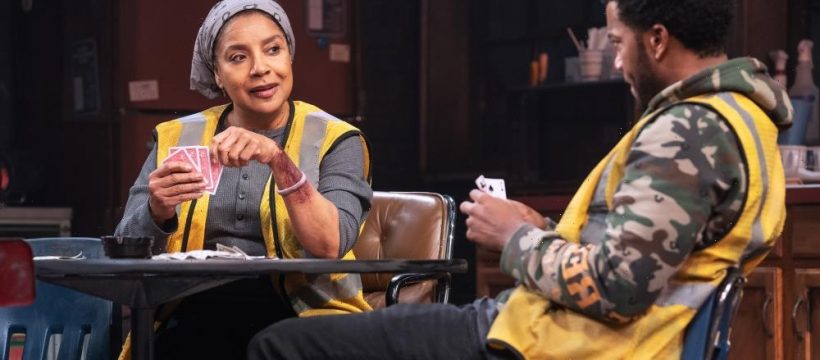The playwright Dominique Morisseau knows what she is doing. That’s clear not only because she says it so convincingly in her Playbill note for Manhattan Theatre Club’s production of “Skeleton Crew,” but because she writes this moving drama with pristine delicacy and develops its characters with rigorous detail and tact. Under the masterful direction of Ruben Santiago-Hudson, “Skeleton Crew” presents a vibrant cast, poetic dialogue and profoundly layered storytelling that move the audience to audibly engage.
After a successful run Off Broadway at the Atlantic Theater Company in 2016, Morisseau’s final installment of her blistering Detroit trilogy (also including “Detroit ’67” and “Paradise Blue”) has arrived on Broadway in a new production. “Skeleton Crew” offers a microscopic look at the work lives of four Black employees at an automotive stamping plant in Detroit in the midst of the 2008 recession. The Motor City once held more than 200,000 jobs for the working class in auto plants run by Chrysler, Ford and General Motors, but Morisseau thrusts the audience into the once-booming industry at a time of decline. The auto plant where characters Faye, Dez, Shanita and Reggie work is the last one standing, and everyone’s job is at risk.
Detroit was one of the most important destinations for Black migrants from the south because of the vast work opportunities, but Black people who were hired for auto industry jobs found themselves in undesirable and more dangerous positions like those at the stamping plant. Michael Carnahan’s detailed set lays out that backdrop succinctly. Obama/Biden stickers, “Support Unions” and other signage displaying rules and regulations adorn a messy breakroom, giving context to the changing times. From the worn lockers, tacked up bulletin board and table with four different chairs, every detail is spot-on, precise and familiar. The static set becomes the worker’s keeper of secrets and solace — a place where they gather to drink coffee, gamble and chit-chat. Here is where Morisseau tenderly strips down her characters and introduces the dynamic quartet.
Faye, brilliantly played by Phylicia Rashad, is the unabashed OG; she’s the veteran employee who’s worked at the auto plant for 29 years and has the scars to show for it. She’s aware of her worth; but as the division’s union representative she works to protect the job security of her team, often forgetting to put herself first. Dez, strongly performed by Joshua Boone, is the group’s flirtatious hot-head. He comes across at first as reckless; but he’s thoughtful, purposeful and boldly invests in his future. The foreman, Reggie (a believable Brandon J. Dirden), plays his part as the blue-collar boss, attempting to carry out the rules enforced by his unseen white-collar bosses upstairs. He’s conflicted between fighting for his team and saving his own job.
A standout performance comes from Chanté Adams (“A Journal for Jordan”), making her Broadway debut as Shanita. Shanita is pregnant, prideful and enjoys being of value. “Love the way the line needs me. Like if I step away for even a second and don’t ask somebody to mind my post, the whole operation has to stop,” Shanita says.
Morisseau has penned a true ensemble piece highlighted by individuals who are flawed, relatable and vastly human. The majority of the first act is devoted to deliberate character development with scene changes led by fluid hip-hop dances by Adesola Osakalumi and stunning projections by Nicholas Hussong. At times you might wonder where it’s all going, but like the production line, every moment is judiciously planned and carefully assembled. Her characters move sequentially along a line that, in the end, gives life and nuance to working-class people often portrayed as one-dimensional. “Skeleton Crew” is more than a play about blue-collar blood and sweat; it is a story filled with depth and relatable characters. Morisseau gives you meat along with dem bones.
Source: Read Full Article
